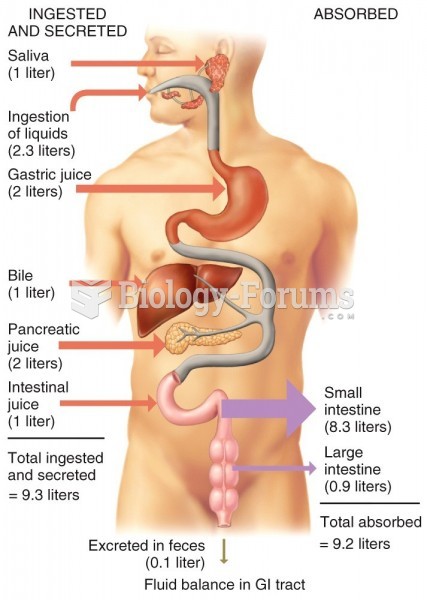|
|
|
Of the estimated 2 million heroin users in the United States, 600,000–800,000 are considered hardcore addicts. Heroin addiction is considered to be one of the hardest addictions to recover from.
Autoimmune diseases occur when the immune system destroys its own healthy tissues. When this occurs, white blood cells cannot distinguish between pathogens and normal cells.
Hyperthyroidism leads to an increased rate of metabolism and affects about 1% of women but only 0.1% of men. For most people, this increased metabolic rate causes the thyroid gland to become enlarged (known as a goiter).
Earwax has antimicrobial properties that reduce the viability of bacteria and fungus in the human ear.
Studies show that systolic blood pressure can be significantly lowered by taking statins. In fact, the higher the patient's baseline blood pressure, the greater the effect of statins on his or her blood pressure.
 Nomogram chart. This example shows a line drawn from a child’s height of 100 cm to his weight, 35 ...
Nomogram chart. This example shows a line drawn from a child’s height of 100 cm to his weight, 35 ...
 A rapidly vibrating needle at idle that becomes steady as engine speed is increased indicates worn ...
A rapidly vibrating needle at idle that becomes steady as engine speed is increased indicates worn ...





